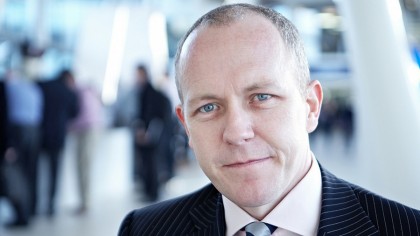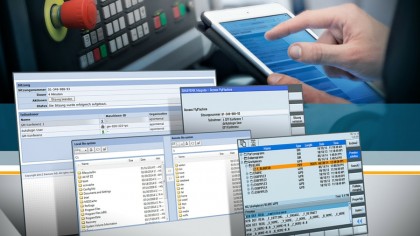Why the Internet of Things could fail
Is the IoT really the slam-dunk we're all told it is?
Brave new connected world
There are also those who think that the very thing the IoT needs to succeed is hype and overblown predictions. "Confidence in IoT is key to giving the technology a fighting chance," says Manfred Kube, Head of M2M Segment, Gemalto. "People need to trust the innovators and the brave new connected world that will emerge as a result."
Kube maintains that while expectations are high, the IoT is still going to have an incredible transformative aspect on our lives. "Secure and ubiquitous IoT applications will make life easier, safer and more enjoyable," he adds, underlining how crucial it is that this ever-expanding network is – and is seen as – safe, efficient and secure.

Is it too early for Chief IoT Officers?
The demand for more connectivity means the creation and expansion of dedicated 'IoT departments' in business, with some companies creating senior IoT positions. "It is unclear what a Chief IoT Officer would actually do," says Duke-Woolley, wondering how such a role would relate to a Chief Information Officer.
"While some companies may introduce that position, we think it will be short-lived because its remit is likely to be constrained to individual projects, although those projects may be very important to the company and its future," he says, adding that roles such as Chief Innovation Officer, Chief Strategy Officer, Chief Operations Officer and Chief Information Officer are sufficient to incorporate IoT-based matters.
Making the most of IT
Big data, IoT, cloud computing – business has a lot of disruptive tech on its plate at the moment. "It's important we don't get carried away," says Ben Dowd, Business Director at O2. "First there's a real need to help businesses, particularly small businesses, to make the most of the connectivity that's already at their fingertips."
O2's research shows that less than half of UK businesses have integrated 'digital' into their strategies, with small businesses twice as likely as larger SMEs to describe themselves as 'hopeless' when it comes to digital.
"If we don't collectively improve the digital confidence and competence of our small business community and local authorities, we won't see the full benefits the IoT can bring," says Dowd.
Sign up to the TechRadar Pro newsletter to get all the top news, opinion, features and guidance your business needs to succeed!

The trivialisation trap
It's easy to pour scorn on the IoT and other hyped up tech concepts. "People sit at the heart of the IoT ecosystem and it is therefore natural to think about IoT in terms that we can easily understand today – such as connected white goods appliances and smart car parking," says Evans, "but we shouldn't lose sight of the fact that we are still in the foothills for realising how the IoT will change our energy and transport grid function, its impact on health and social care, and how we will regard the built environment in smart cities."
Evans thinks that the true value will come from the data IoT devices generate, and the insights we can draw from knowing more about behaviour, adding: "It's crucial that we don't think about IoT in isolation."
Duke-Woolley agrees that even if the IoT is overblown and overhyped, it is really happening. "While companies should be cautious of the optimistic predictions, it is becoming increasingly important to consider what IoT offers as an opportunity to compete more strongly in their own markets," he says.
It might be a much slower-burn than many in tech like to admit, but we do know one thing: the IoT is here to stay.
- 1
- 2
Current page: Chief IoT Officers and the trivialisation trap
Prev Page Introduction and IoT hypeJamie is a freelance tech, travel and space journalist based in the UK. He’s been writing regularly for Techradar since it was launched in 2008 and also writes regularly for Forbes, The Telegraph, the South China Morning Post, Sky & Telescope and the Sky At Night magazine as well as other Future titles T3, Digital Camera World, All About Space and Space.com. He also edits two of his own websites, TravGear.com and WhenIsTheNextEclipse.com that reflect his obsession with travel gear and solar eclipse travel. He is the author of A Stargazing Program For Beginners (Springer, 2015),
